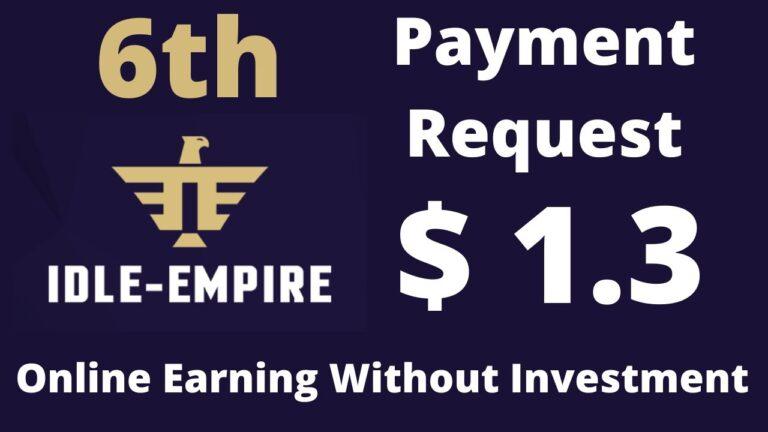

The UAE Ministry of Education is spearheading a groundbreaking transformation in the educational landscape for Year 11 and Year 12 students. With a progressive vision in mind, the Ministry has introduced a revolutionary model that empowers students to choose subjects tailored to their abilities and interests. This paradigm shift aims to provide students with a personalized and enriching educational experience, nurturing their individual growth and development.
Read UAE: No Driving Licence Test Required for Residents from These 43 Countries
Enhancing Education Pathways
Under this new model, UAE students have the opportunity to shape their own educational pathways by selecting subjects that align with their abilities and academic levels. By recognizing and embracing the unique capabilities of each student, the Ministry of Education aims to foster a learning environment that nurtures their talents and facilitates overall growth. This increased flexibility equips students with the knowledge and skills necessary to pursue their desired academic specializations in higher education and beyond.
Read Work in Norway: Move to Europe without Visas and Permits
Implementation Timeline
The Ministry of Education has outlined a phased approach for implementing this groundbreaking model. Initially, the elective subjects model will be introduced to eleventh-grade students during the academic year 2023-2024. Subsequently, starting from the 2024-2025 academic year, it will be expanded to include both eleventh and twelfth-grade students. This thoughtful and gradual implementation allows for careful evaluation and refinement of the model, ensuring its effectiveness and positive impact on students’ academic journeys.
Read What is the Least Visited European Country?
Pioneering Educational Standards
Dr. Ahmad Belhoul Al Falasi, the Minister of Education, emphasizes that the adoption of the elective subjects model is a testament to the Ministry of Education’s commitment to embracing the best international standards and practices in education. By aligning with global benchmarks, the UAE aims to enhance its education system and equip students with the necessary tools to excel in their academic and professional pursuits. This transformative approach also provides an opportunity for schools to deliver more effective academic guidance and develop tailored academic or skill programs based on students’ needs.


Read Who is the Richest Person in Education?
Driving Academic Excellence
Dr. Al Falasi expresses optimism about the impact of the elective subjects’ model, stating, “This model will contribute to the development of the educational system in our country, enabling students to unlock their full potential and excel both academically and professionally.” By promoting student and parent engagement, the Ministry of Education aims to encourage active participation in the education process. Regular evaluations, conducted in collaboration with schools and relevant authorities, will monitor the implementation of the new model and drive continuous improvement in its outcomes.
Elective Subjects’ Model: A Glimpse into the Future
As per the Elective Subjects’ Model, eleventh-grade students during the academic year 2023-2024, and subsequently, eleventh and twelfth-grade students starting from the academic year 2024-2025, will be required to complete six Compulsory Academic Subjects. These include Arabic language, Islamic Studies, Social Studies/Moral Education, English language, Mathematics, and Physical and Health Education.
In addition to the compulsory subjects, students will have the opportunity to choose from a diverse range of elective subjects. The first group encompasses three science subjects: Physics, Chemistry, and Biology. The second group offers three options: Computing, Creative Design and Innovation, Health Sciences, and Arts. The Ministry of Education emphasizes that the Electives Model will ensure the maintenance of targeted learning outcomes, as per the curriculum expectations.
Read How can I get an e-Visa for Japan From Japan eVisa Website
Customizing Education for Success
The introduction of the Electives Model enables students to craft a study plan that aligns with their interests, educational levels, and future higher education aspirations. The number of subjects and classes may vary for each student based on their chosen plan. This personalized approach fosters a dynamic and engaging learning environment, empowering students to explore their passions and unlock their full potential.
The education landscape in the United Arab Emirates (UAE) is undergoing a transformative shift with the establishment of specialized authorities. These entities, affiliated with the UAE Cabinet, are dedicated to improving various aspects of the educational system. This article explores the roles and responsibilities of these authorities and their impact on the quality, standards, and efficiency of education in the country.
Read Cheap Vocational Schools in New Zealand for International Students
The Federal Authority for Quality and Standards of Education


Measuring Educational Outcomes and Performance
One of the key responsibilities of the Federal Authority for Quality and Standards of Education is to measure the outcomes and performance of students. By conducting comprehensive assessments, this authority aims to gauge the effectiveness of the educational process.
Read Top 10 Schengen Countries to Obtain a Schengen Visa in 2023
Enhancing Education Quality
The authority is entrusted with the task of evaluating the quality of education provided across different levels, including early childhood education, kindergarten, public education, and higher education. Through rigorous audits, it ensures adherence to set standards and identifies areas for improvement.
Reporting and Policy Development
In addition to its evaluative role, the authority is responsible for generating reports on educational results. These reports serve as a basis for developing policies, strategies, legislation, and curricula that align with international best practices. By continuously analyzing data and proposing innovative measures, the authority strives to advance the overall education system in the UAE.
Read New Schengen Style Visa GCC Planned For GCC Countries
The Federal Authority for Early Childhood Education


Comprehensive Development Plans
With a focus on the early childhood stage, the Federal Authority for Early Childhood Education designs and implements comprehensive plans to support child development from birth to the fourth grade. This specialized authority works in coordination with the UAE Cabinet to ensure the educational needs of young learners are effectively addressed.
Read 30+ Countries Without Visa: Good News For Pakistani Passport Holders
Policy Formulation and Program Development
The authority takes charge of formulating policies, strategies, legislation, and programs related to early childhood education. By setting regulations and standards, it creates a conducive environment for quality learning experiences. Furthermore, it issues licenses and monitors both government and private nurseries to ensure compliance with established guidelines.
Collaboration with Parents
Recognizing the crucial role of parents in a child’s early education, the authority actively engages with parents to enhance their involvement during the early childhood stage. Through effective communication and partnerships, it aims to create a supportive ecosystem that nurtures the holistic development of children.
Read Is Italy Really Planning on Banning English?
Developing the Ministry of Education


Policy and Legislation Development
Under the new structure, the Ministry of Education plays a vital role in developing policies, strategies, and legislation for public and higher education. With a proactive approach, the Ministry of Education aims to create an enabling framework that fosters educational excellence across the country.
Curricula Management and Standardization
The Ministry of Education is responsible for managing and enhancing the general education framework. It develops curricula and tools for government public education schools while ensuring the quality and relevance of educational materials in private schools. Moreover, the Ministry of Education sets standards and regulations and collaborates with local authorities to license and monitor private schools.
Read What is the meaning of fruit in dreams?
International Exam Management
As part of its responsibilities, the Ministry of Education oversees international exams conducted within the UAE. It ensures the smooth implementation of these exams across public, private, and higher education institutions in coordination with relevant authorities. This holistic approach ensures that students receive equitable opportunities for educational advancement.
Recognition and Equivalency
The Ministry of Education also plays a pivotal role in recognizing public and higher education institutions operating beyond the country’s borders. It evaluates the equivalence of certificates and qualifications granted by these institutions. Additionally, the Ministry of Education ratifies certificates and qualifications issued by the licensed public, higher education, and training institutions within the UAE. This process of recognition and equivalency ensures the credibility and validity of educational credentials, allowing individuals to pursue further studies or professional opportunities with confidence.
Read What is the Difference Between Ramadan and Ramzan?
The Emirates Schools Establishment
Enhancing Government Schools
Embedded within the education system’s new structure is the Emirates Schools Establishment, overseen by the UAE Cabinet. This entity focuses on optimizing the efficiency of government schools and nurseries. Implementing policies, strategies, and standards aligned with educational development, aims to elevate the overall quality of education in the country.
Student-Care Programs and Innovation
In line with its mandate, the Establishment specializes in developing student-care programs, activities, and events within public schools. It assumes responsibility for supervising their implementation, ensuring a nurturing and supportive environment for students. Additionally, the Establishment actively proposes innovative models to operate public schools, fostering continuous improvements in their efficiency and effectiveness.
Read Top 11 Best Schools in Karachi For Quality Education
The UAE’s commitment to revolutionizing its education system is evident through the establishment of specialized authorities. The Federal Authority for Quality and Standards of Education, the Federal Authority for Early Childhood Education, and the Emirates Schools Establishment play pivotal roles in enhancing various aspects of education, from measuring outcomes and setting standards to developing policies, curricula, and programs. With a comprehensive approach and a focus on continuous improvement, these authorities are poised to shape a future where education in the UAE excels and sets new benchmarks of excellence.
Final Words About Education Changes from the Ministry of Education
With the implementation of the elective subjects model, the UAE Ministry of Education has taken a momentous stride toward revolutionizing the education system. This innovative approach empowers students by granting them the freedom to shape their own educational paths, aligning with their abilities, interests, and aspirations. By recognizing the unique capabilities of each student and providing a more flexible learning environment, the Ministry of Education aims to nurture their talents and foster their overall growth and development.
Read Are the Naats that Contain Music Allowed in Islam or Not?
The introduction of the Electives Model not only enhances students’ educational journeys but also paves the way for a more dynamic and engaging academic experience. By allowing students to choose subjects beyond the compulsory curriculum, they can explore their passions, develop specialized skills, and prepare themselves for higher education and future careers. This personalized approach to education equips students with the necessary knowledge and competencies to excel in their chosen fields.
Furthermore, the Ministry of Education’s commitment to international standards and practices ensures that the Electives Model is aligned with global benchmarks, positioning the UAE’s education system as a leader in innovation and excellence. By actively involving students and parents in the education process, the Ministry of Education aims to foster a collaborative and supportive learning community.
Regular evaluations and feedback mechanisms will play a crucial role in monitoring the implementation of the new model and driving continuous improvement. This commitment to ongoing assessment and refinement demonstrates the Ministry of Education’s dedication to providing the best possible educational experience for students.
In conclusion, the UAE Ministry of Education’s introduction of the elective subjects model marks a significant milestone in the quest for educational excellence. By embracing student choice and customization, the Ministry of Education has created an educational landscape that empowers students, nurtures their talents, and prepares them for a successful future. This forward-thinking approach sets a new standard for educational systems worldwide and positions the UAE as a hub for innovative and student-centered learning.
Read Best Deals on Samsonite Luggage Sets
FAQs
1. How has education changed in the UAE?
The UAE’s education system is still in its infancy. There were few official schools in the country in 1952. A school construction program enlarged the educational system in the 1960s and 1970s. Education at the primary and secondary levels is now available to everybody.
2. Is year 13 compulsory in UAE?
In the UAE, compulsory schooling is available from the age of six to eighteen (or until the completion of Grade 12/Year 13).
3. Is the Emsat no longer needed?
According to the Ministry of Education, EmSat testing is no longer mandatory for UAE universities. According to the MoE decision, the usage of the Emirates Standardised Test (EmSAT) would be made optional for university admissions beginning in 2023-2024.
4. How good is UAE education system?
Higher education in the United Arab Emirates
The UAE has an extremely high tertiary school enrollment rate, with 95% of girls and 80% of boys applying to higher education institutions. Emirati students are entitled to free tuition at state universities. Three Emirati colleges are in the top 500 in the world.
5. Which is the No 1 school in Dubai?
These are the top schools in Dubai
- Kings School Dubai LLC.
- Gems Wellington International School.
- Jumeirah College.
- Jumeirah English Speaking School.
- Dubai College.
- GEMS Jumeira Primary School.
- GEMS Dubai American Academy.
- GEMS Modern Academy.







One Comment